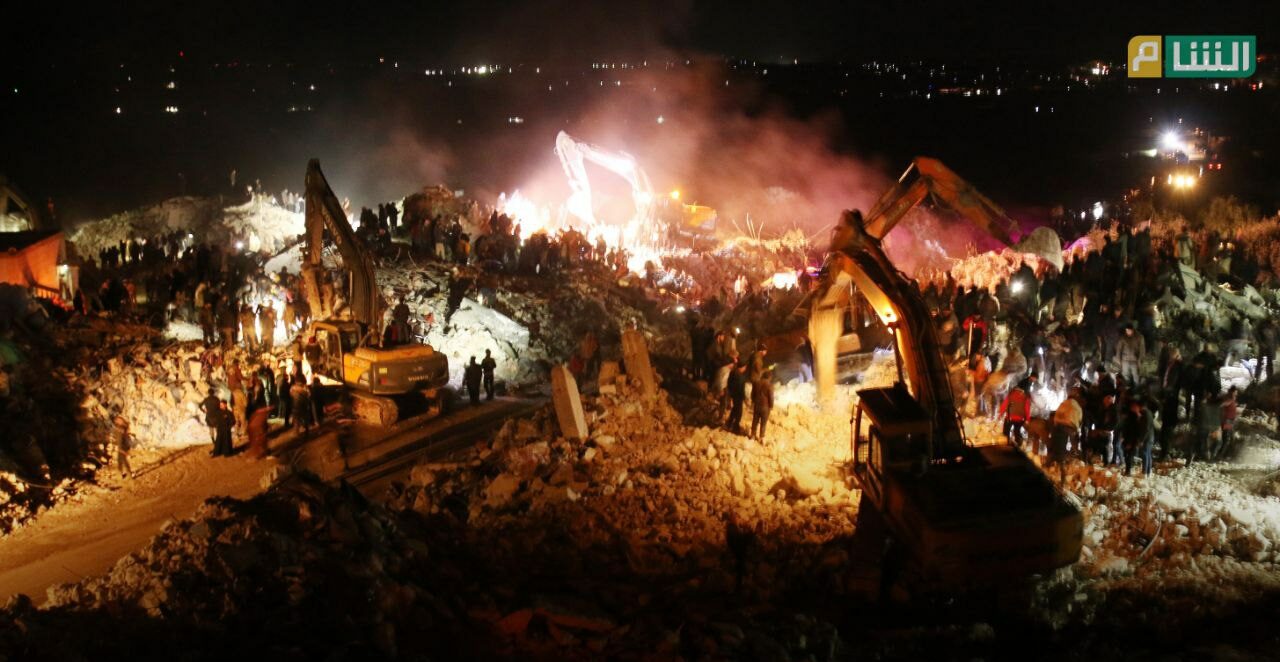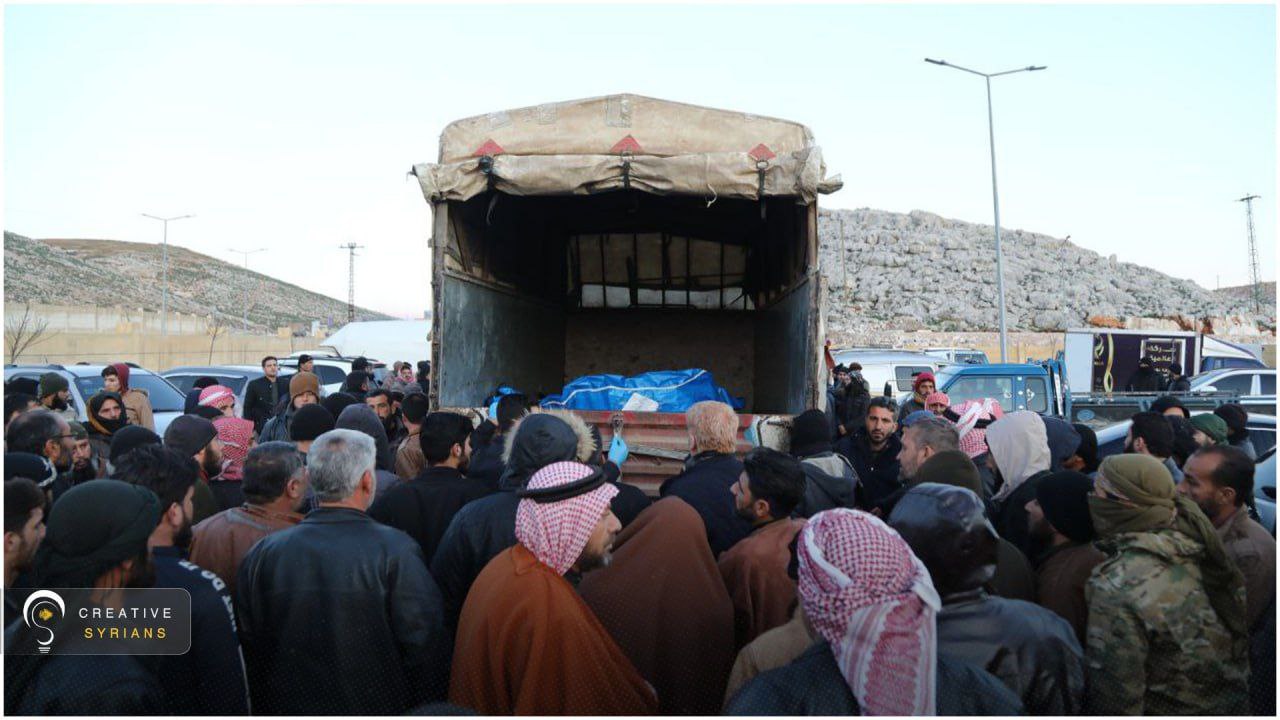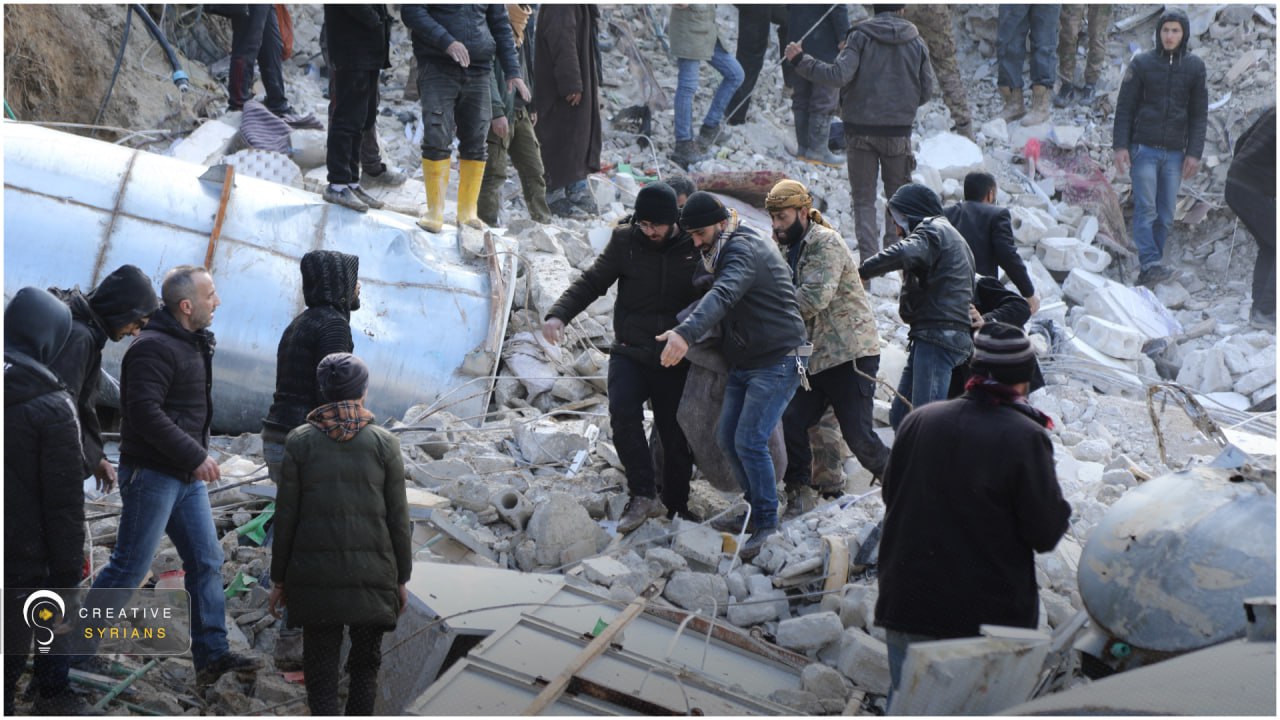
Since the devastating earthquake afflicting southern Turkey and northern Syria the only thing entering Syria from Turkey has been a morbid stream of deceased Syrians, victims of the February 6th earthquake that has left nearly 2,000 dead and over 2,800 injured and leaving thousands from more than 40 localities homeless.
Syria’s earthquake has added another tragic layer to the lives of the vulnerable people still suffering after 12 years of war. The devastating impact of this catastrophe will require an extended and coordinated international aid effort. However, despite many pledges from the international community including the UN and EU, no aid has reached the search and rescue teams nor the suffering Syrians impacting by this disaster. A Levant 24 (L24) correspondent who visited the affected areas asked local aid organizations and civilian volunteers if any outside aid had reached them and all responded in the negative.
Speed is a Necessity!
As the crisis reaches its third day and teams scramble to save lives, the situation looks bleak as the clock winds on with no sign of external assistance, UK based specialist in in natural hazards and disasters Dr. Steven Godby stressed the importance of a rapid response in order to maximize chances of saving lives, mentioning that after 72 hours chances of survival are 22% dropping to 6% day the fifth day.
The Syrian Civil Defense Force, which is leading efforts to rescue people buried under the rubble in the liberated areas of Syria hit by the earthquake, says it has received little to no assistance from the international community so far. It’s not only the rescue effort in need of assistance as hospitals and clinics are inundated with the injured.

Ahmed Ghandour, a doctor working in the hard hit Idlib province mentioned that with the limited equipment of the medical sector and the ever increasing number of injured, exceeding 2,750 that the medical sector is at risk of being overwhelmed. “There is no space for all of them,” Ghandour said, adding that soon there would be a lack of medical supplies due to the sheer scale of casualties.
In a public statement, the administration of the Bab al-Hawa Border Crossing declared, “no humanitarian aids or equipment have crossed to the freed areas for the last three days” while maintaining that they remain, “ready to facilitate the entrance of any aid convoys, teams, or equipment.” While an official at the crossing informed L24 that “thus far only 285 bodies of Syrians who died in the earthquake have come through the border from Turkey, with no sign of aid.”

Why?
While some claims have been made of logistical obstacles, such as damaged roadways, the facility with which the dead have been returned cast doubts on the validity of those claims. Some analysts posit the reason is more political than logistical, citing the regional divisions between various opposition factions and between opposition and Assad controlled areas make delaying and sending aid difficult as various actors fear violating sanctions, whether on Assad controlled areas or those designated “terrorist” such as northern enclaves where the PKK or HTS are present.
There is also the fact that Turkey is also in need of much aid and may be reluctant or unable to facilitate “exporting aid” to Syria, especially in the face of upcoming elections. Assad allies, Russia and Iran are prepared to continue supporting Damascus but remain adamant that any and all aid pass through Assad’s hands which many western organizations are reluctant to do. While Russia, the UAE, Iraq, Iran, and Algeria, have sent teams and equipment they remain in government-held Syrian regions.
SSG Interior Minister Mohamed Abdel-Rahman told the press, “We appeal to Arab and Islamic countries, humanitarian organizations and international bodies to assume their moral and humanitarian responsibilities towards the disaster, and to stand by the Syrian people in the liberated north of Syria.”
While Mohamed Al-Bashir, SSG Minister of Development and Humanitarian Affairs, said, “We have an acute shortage of humanitarian supplies, food parcels, tents, in-kind materials, and NFI parcels, so we appeal to all international organizations working in the humanitarian field to intervene quickly and bring humanitarian aid to thousands of families who lost their homes, businesses and livelihoods due to this disaster.”

Abu Mohammad al-Jolani, HTS leader made a statement to the press saying, “An emergency response committee to manage the crisis was formed right after the earthquake and directives were given to all institutions in the liberated areas to intervene immediately, (including) providing shelters for affected families…” he also called on the international community to assist saying, “despite the work of the government, civilian, military, and aid organizations efforts, the scale of the disaster is very large.”
Without the implementation of a rapid mechanism for facilitating the swift and comprehensive aid needed it’s feared that the stream of deceased victims will rapidly continue to grow as nations and international organizations remain bound in red tape and political posturing.









